Tocopherol Vegan Sources: Unveiling Plant-Based Vitamin E Options
Tocopherol, more commonly known as Vitamin E, is a crucial nutrient that plays an important role in maintaining good health, particularly as a powerful antioxidant. In the context of a vegan diet, it's pertinent for us to consider the sources and adequacy of tocopherol since plant-based diets exclude animal products, which are traditional sources of certain vitamins. Vegans often achieve higher plasma alpha-tocopherol concentrations relative to cholesterol, suggesting a favorable tocopherol status likely due to the higher intake of tocopherol-rich foods like nuts and seeds.
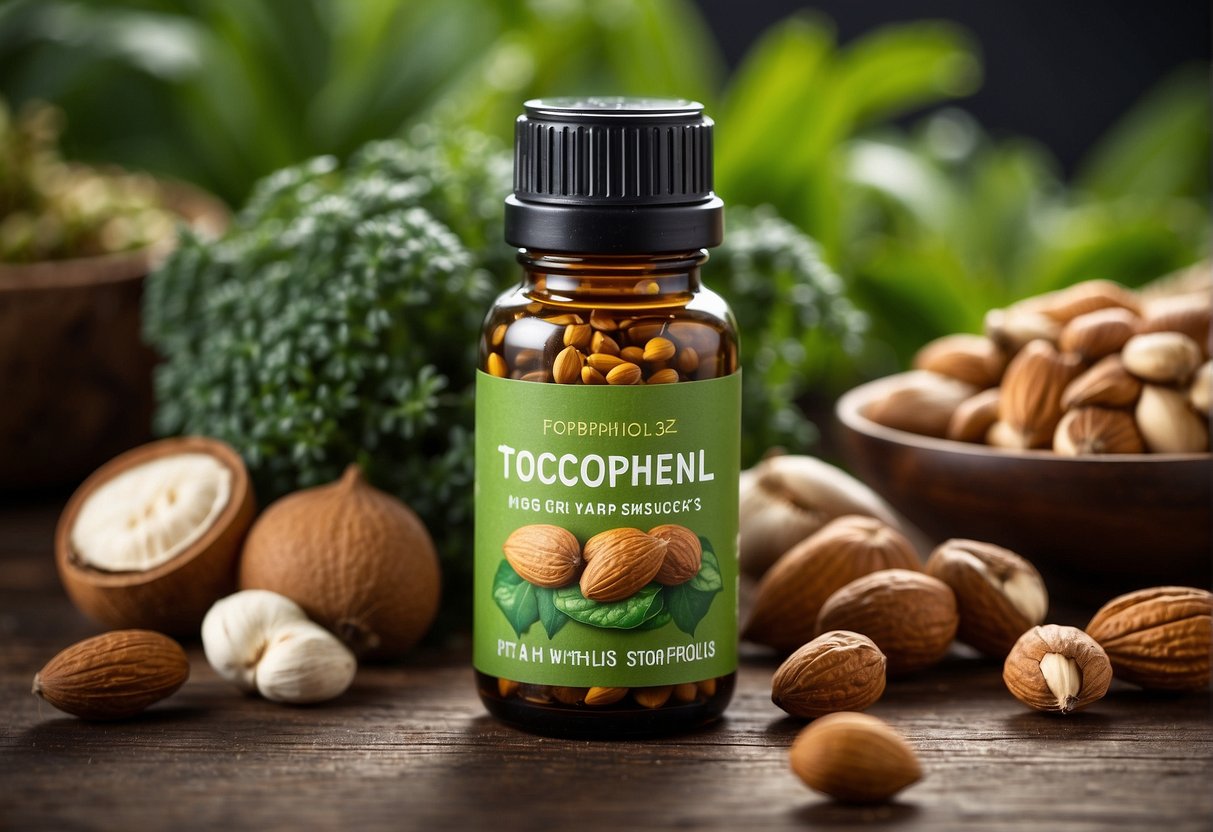
We should understand that tocopherol isn't just one compound, but rather a group of fat-soluble compounds with vitamin E activity. The dietary intake and consequent blood concentrations of tocopherol are influenced by both the foods consumed and the presence of any supplements a vegan might take. Research highlights that long-term strict vegans may rely on uncooked diets and supplements for their antioxidant status, which points toward the importance of both diet planning and potential supplementation to maintain optimal nutritional balance.
Key Takeaways
- Vegans may have higher alpha-tocopherol levels due to their plant-based dietary choices.
- Tocopherol, a form of Vitamin E, requires mindful intake from various plant sources or supplementation.
- It is essential for vegans to plan their diet or consider supplements to ensure sufficient tocopherol levels.
Tocopherols in a Vegan Diet
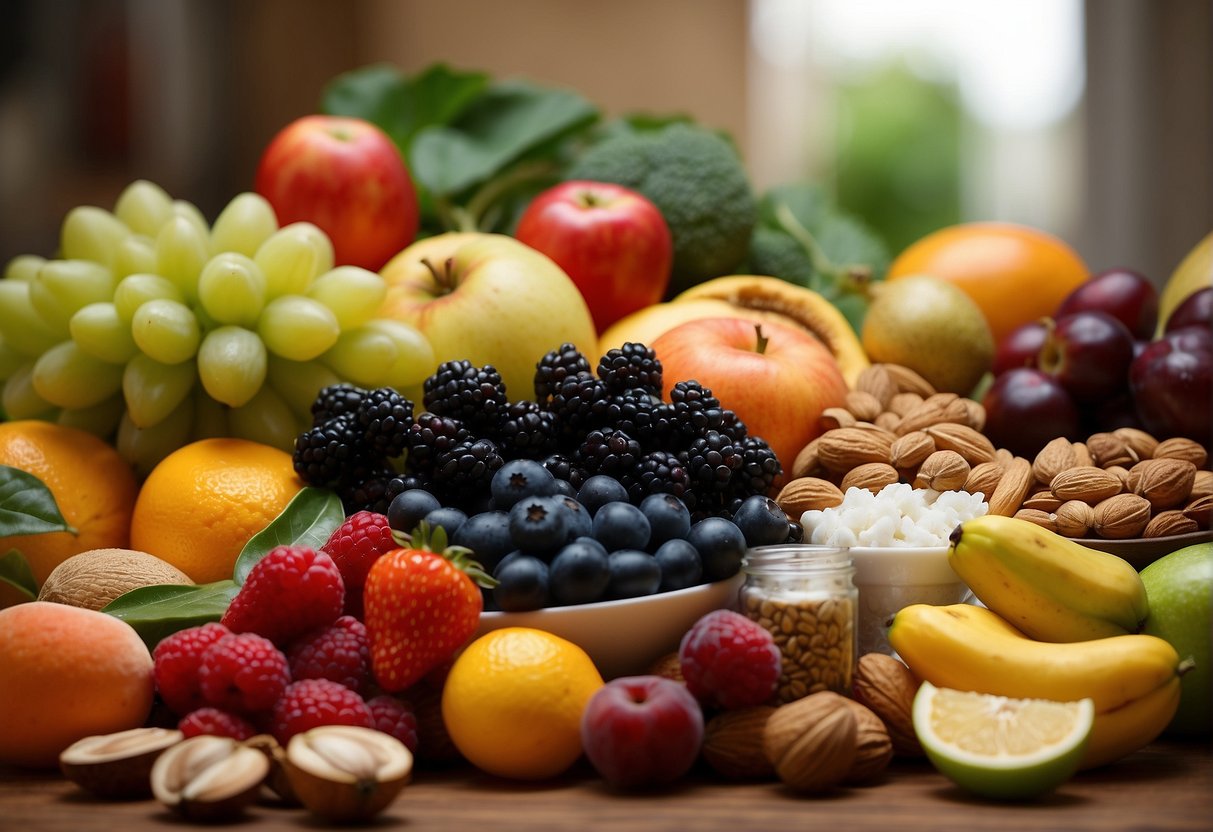
We'll explore the importance of tocopherols, commonly known as vitamin E, in a vegan diet, focusing on their health benefits and natural food sources.
Role and Benefits of Tocopherols
Tocopherols serve as a powerful group of antioxidants that protect our body's cells from oxidative stress. They play a crucial role in maintaining skin health, supporting the immune system, and may even contribute to the prevention of chronic diseases. A vegan diet, rich in a variety of plant foods, can provide sufficient amounts of tocopherols necessary for our well-being.
Natural Sources of Vitamin E
The richest natural sources of vitamin E in a vegan diet include nuts and seeds such as sunflower seeds, almonds, and hazelnuts. Plant-based oils like wheat germ, sunflower, and safflower oil are also high in tocopherols. Additionally, whole grains and green leafy vegetables contribute to the dietary intake of vitamin E. Those on a vegan diet should ensure these foods are part of their regular meal plan to meet their daily vitamin E needs without relying on dietary supplements.
Understanding Tocopherol Supplements
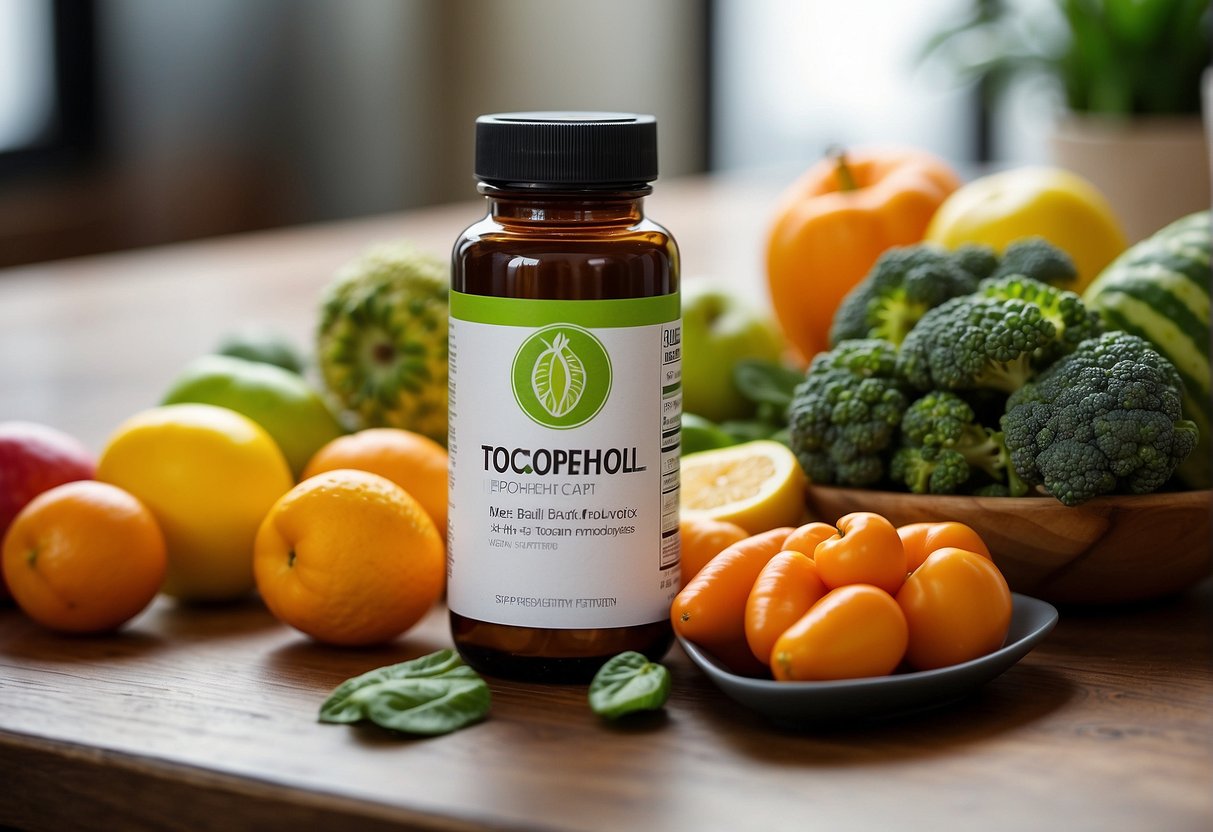
Tocopherol supplements play a crucial role in protecting our body against oxidative stress. As a potent form of Vitamin E, they also contribute to our immune function and skin health.
Types of Tocopherols in Supplements
Tocopherols come in various forms, with alpha-tocopherol being the most common in dietary supplements. However, an ideal vitamin E supplement should contain mixed tocopherols to cover a broad spectrum of antioxidant and anti-inflammatory effects. Typically, these include alpha, beta, gamma, and delta-tocopherols, all sourced from sunflower oil, vegetable oil, or other non-GMO plant oils.
Identifying Vegan Supplements
To ensure a supplement is vegan-friendly, we must look for certain indicators on the label. These include certifications such as "Non-GMO" and "Gluten-Free", as well as a vegan badge. It's essential to examine the supplement facts section meticulously as some vitamin E sources may be derived from non-vegan-friendly sources. Trusted manufacturers will specify the source of their tocopherols, like sunflower oil for its purity and sustainability.
Bioavailability and Absorption
The bioavailability of tocopherol supplements is a key factor in their effectiveness. Supplements that feature alpha-tocopherol are noted to have high bioavailability, which tends to be more readily absorbed by our bodies. Choosing supplements that have been designed for enhanced absorption, often through the incorporation of the full spectrum of tocopherols, can significantly benefit our dietary regimen.
Health Implications of Tocopherols
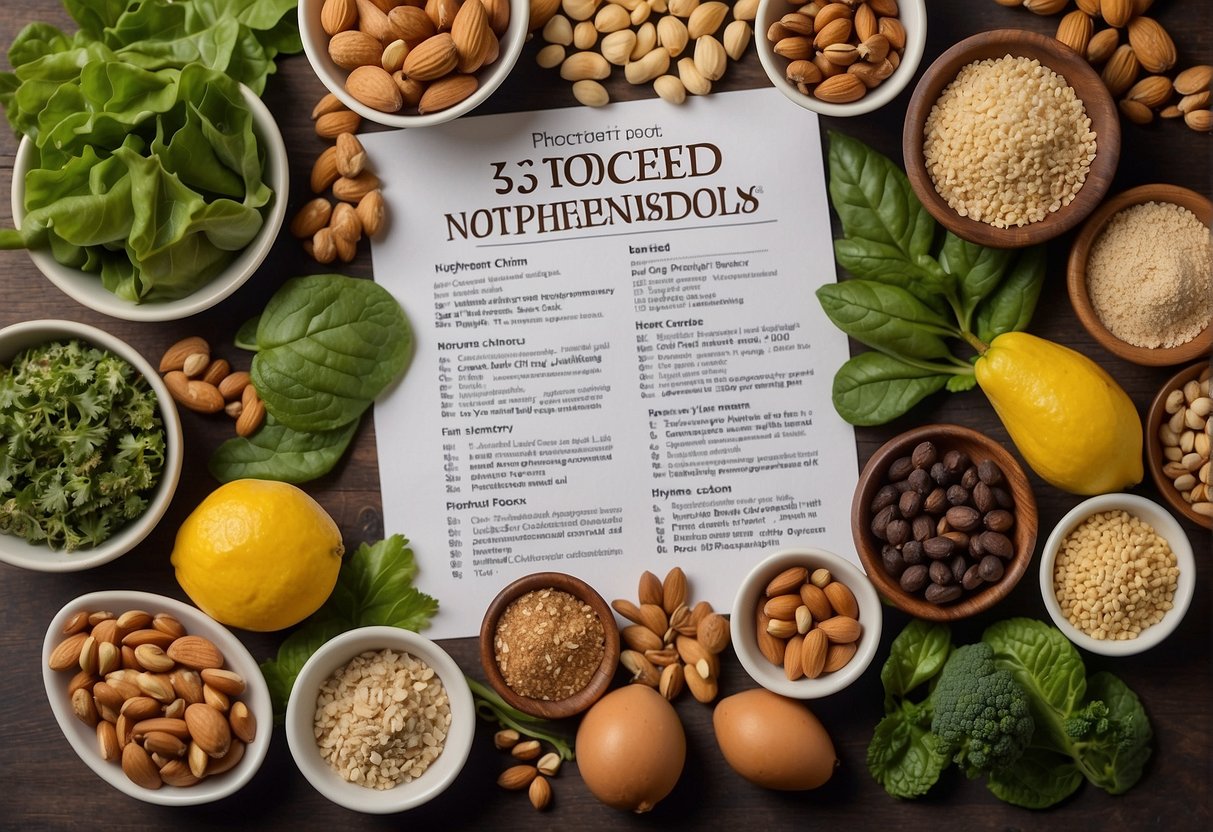
Tocopherols, particularly as found in a vegan diet, have significant benefits for cell health and chronic disease management. They serve as protective antioxidants, play a role in immune function, and may reduce the risk of certain diseases.
Antioxidant Effects on Cell Health
We recognize tocopherols as potent antioxidants that guard cell membranes against oxidative stress by neutralizing free radicals. Oxidative stress can damage cells, leading to premature aging and various diseases. Tocopherols, especially alpha-tocopherol, which is the most active form in humans, protect the integrity of cell membranes, ensuring they function optimally and remain resilient against daily environmental onslaughts.
Impact on Chronic Diseases and Immune System
Extensive research connects tocopherols with reduced inflammation, a common pathway to many chronic diseases including heart disease. Our immune system also benefits from the presence of tocopherols, as these compounds help modulate immune responses reducing susceptibility to diseases. Moreover, tocotrienols, although less researched, have shown potential in supporting the cardiovascular system by improving lipid profiles and combatting atherosclerosis. We consider a combination of tocopherols and tocotrienols important for maintaining a strong, balanced immune system and potentially mitigating the risk of chronic diseases.
Ethical and Environmental Considerations

In approaching the topic of tocopherol within a vegan lifestyle, we must consider both ethical and environmental aspects of sourcing. Tocopherol, commonly known as Vitamin E, is integral to our diet, but its origins are of significant relevance to us, especially when it aligns with vegan ethics.
Tocopherol Sourcing and Veganism
Tocopherol can be derived from various sources, both plant-based and animal. Vegetable oils, such as wheat germ, sunflower, and almond oil, are rich in tocopherol and align with vegan principles. On the other hand, certain animal products also contain tocopherol, yet they contradict vegan ethics, which value the avoidance of animal exploitation and cruelty.
The extraction and production processes of tocopherol must also be examined. Vegan tocopherol should avoid gelatin and other animal-derived additives. We favor plant-based methods for both ethical reasons—preventing animal suffering—and environmental considerations, as plant-based agriculture often has a lower carbon footprint compared to animal farming.
It is imperative that we scrutinize the ingredients of our supplements and food sources. A genuine vegan lifestyle involves thorough vetting of all consumed products to ensure they are free from animal derivatives. By consciously selecting tocopherol sourced from vegetable oils and plant-based additives, we honor both ethical commitments to animal welfare and the environmental advantages of reduced animal agriculture.
Practical Advice for Vegans
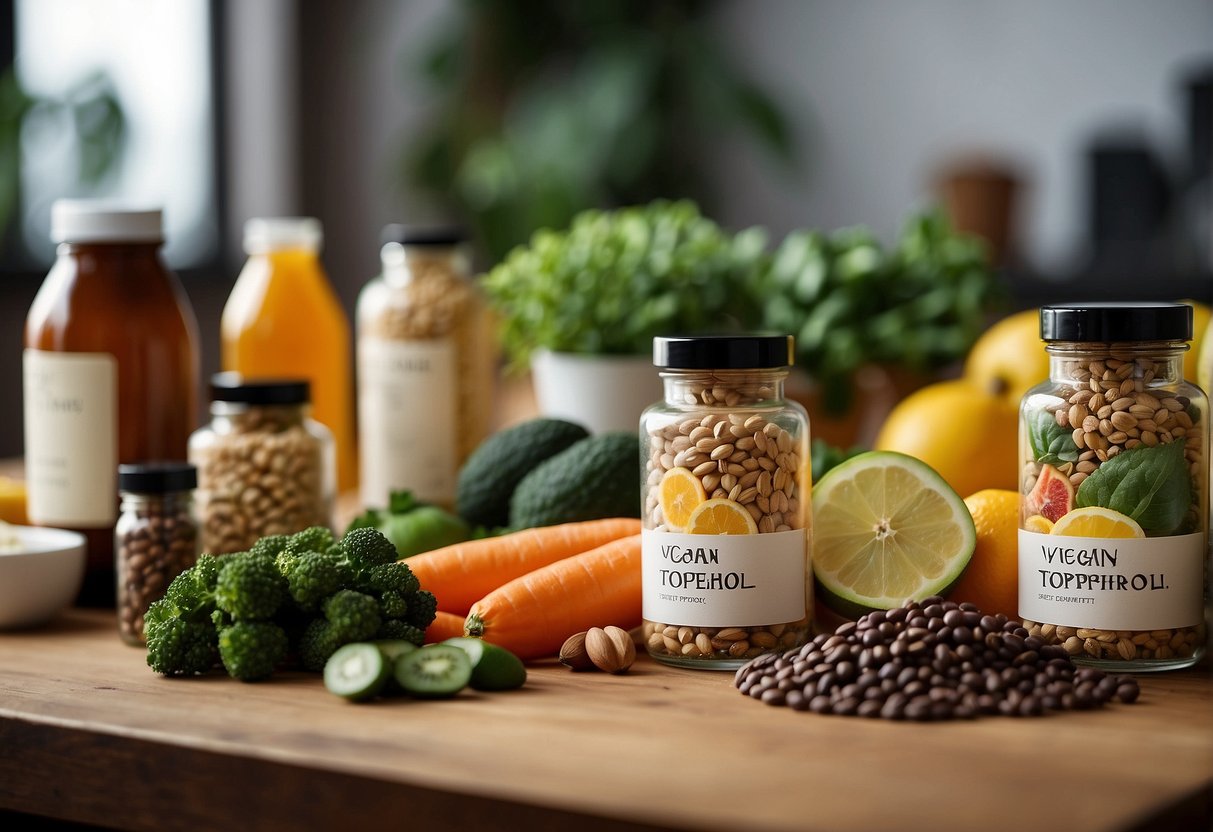
As we explore the importance of tocopherols, or vitamin E, in a vegan diet, it’s crucial to understand effective ways to incorporate this nutrient and its interaction with other essential dietary components.
Incorporating Tocopherols into a Vegan Diet
To ensure an adequate intake of tocopherols, we can include a variety of vitamin E-rich foods in our diet. Almonds, spinach, and fortified foods such as cereals and plant-based milk are excellent sources. We may also consider a dietary supplement, especially if our diet lacks sufficient vitamin E sources. Here’s a brief overview:
- Nuts and Seeds: Almonds, hazelnuts, and sunflower seeds
- Vegetables: Spinach, broccoli, and butternut squash
- Fortified Foods: Plant-based milk and cereals that are fortified with vitamin E
Regular monitoring is important to prevent deficiency while ensuring that we don’t exceed the recommended daily allowance, as too much can be counterproductive.
Interactions with Other Nutrients and Conditions
Tocopherols can interact with various nutrients and medical conditions in significant ways. For example, vitamin E absorption can be influenced by the presence of dietary fat, which is why eating vitamin E-rich foods along with sources of healthy fats like omega-3 fatty acids can be beneficial. Here are specific interactions we need to keep in mind:
- Iron: Vitamin E can potentially interfere with iron absorption, so we should balance our intake appropriately.
- Vitamin D and Calcium: Adequate levels of vitamin E might assist in the maintenance of vitamin D levels and enhance calcium absorption.
- Medication: If we are on any medication or have a medical condition, it's essential to consult a healthcare provider before taking vitamin E supplements.
- Vitamin B12 and Fiber: A well-balanced vegan diet high in fiber also necessitates sufficient levels of vitamin B12, often found in nutritional supplements and fortified foods.
Overall, maintaining a balanced diet and being aware of these interactions ensures we can effectively benefit from tocopherols without compromising our overall nutrient intake.
Product Selection and Usage
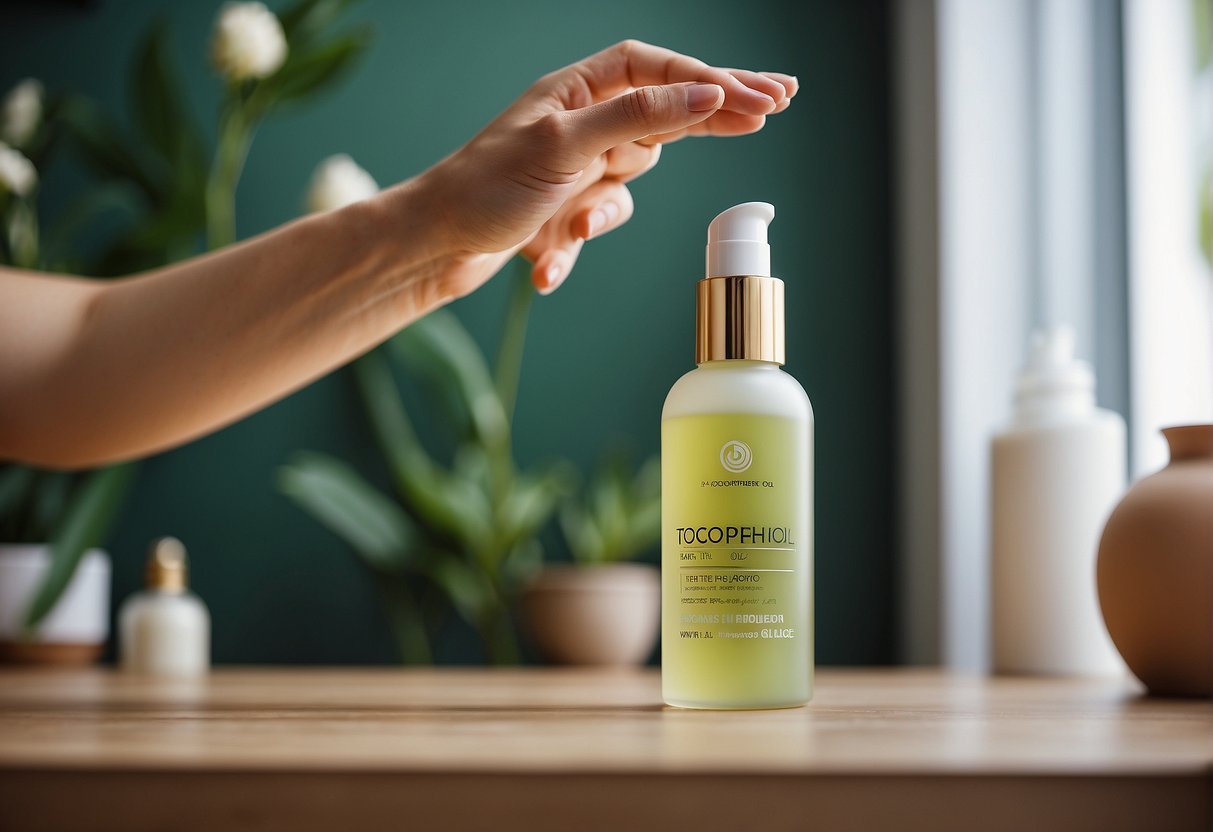
When selecting tocopherol (vitamin E) supplements as a vegan, it’s important to read labels for the type of tocopherol, its sources, and dosage to ensure the product aligns with vegan lifestyle and dietary needs as well as personal health considerations.
Reading and Understanding Supplement Labels
To make informed choices, we always look for the type of tocopherol used in a supplement. Natural forms of vitamin E are labeled as d-alpha, d-beta, d-gamma, and d-delta tocopherol, while synthetic forms are listed as dl-alpha tocopherol. For those of us following a vegan diet, it’s crucial to check for vegan-friendly ingredients such as cellulose or soy lecithin, and avoid those with non-vegan additives. The UPC provides information on the specific product for additional research, which could include searching for reviews. Manufacturers are required by the Food and Drug Administration (FDA) to include pertinent information on their labels, but it’s our job to interpret it correctly.
Dosage Recommendations and Safety
The National Institutes of Health (NIH) provides dosage guidelines that say an adult's dietary allowance for vitamin E is around 15 mg (or 22.4 IU). We must adhere to the recommended dosage to prevent overconsumption, which can interfere with medication and cell signaling. Before adding a supplement to our routine, we consider any medical conditions and potential interactions with medication under UV light exposure. It's advisable to choose softgels or capsules that meet or do not exceed the recommended dose, ensuring the safe and effective use of tocopherol supplements.
Frequently Asked Questions
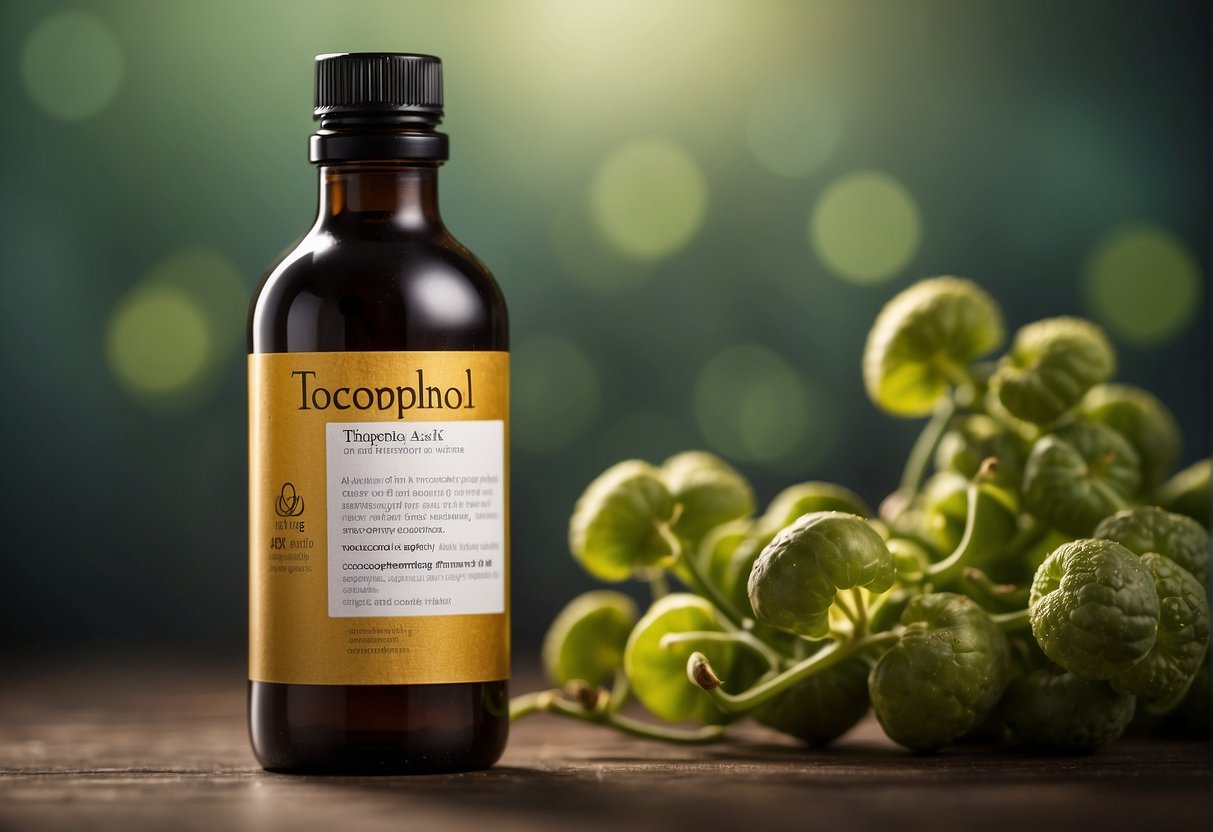
Vitamin E is crucial for our health, and as vegans, it's important to know reliable sources and ensure adequate intake.
What are the best sources of vitamin E for vegans?
The best sources of vitamin E for vegans include nuts like almonds and hazelnuts, seeds such as sunflower seeds, and plant oils like wheat germ, sunflower, and safflower oils. Green leafy vegetables like spinach and broccoli also provide vitamin E.
How can vegans ensure they get enough vitamin E in their diet?
To ensure adequate intake of vitamin E, we can incorporate a variety of vitamin E-rich foods in our daily diet. Regularly eating fortified cereals and grains, along with vitamin E-containing fruits and vegetables, can help maintain our levels.
What is the origin of tocopherol in supplements and is it suitable for vegans?
Tocopherol in supplements can be derived from both plant and synthetic sources. It is suitable for vegans when sourced from plants like soybeans or corn, but we must check the label for any non-vegan ingredients in the supplement.
Can vitamin E be synthetic, and how does this impact its vegan status?
Yes, vitamin E can be synthetic, known as dl-alpha-tocopherol, and is often cheaper to produce. Synthetic vitamin E is chemically identical to natural forms and is considered vegan, but we should verify the auxiliary ingredients in supplements for complete vegan compliance.
How does natural tocopherol compare to synthetic versions in terms of efficacy and purity?
Natural tocopherol, labeled as d-alpha tocopherol, is generally preferred as it's believed to be better retained in our bodies. However, both natural and synthetic forms are effective. Purity depends on manufacturing processes and is not inherently linked to the source.
Are there vegan-friendly vitamin E oils available on the market?
Yes, there are vegan-friendly vitamin E oils available. These products typically derive tocopherol from vegan sources such as soy, wheat germ, or other plant oils. Always read labels to ensure the product meets vegan standards and doesn't contain any animal-derived ingredients.